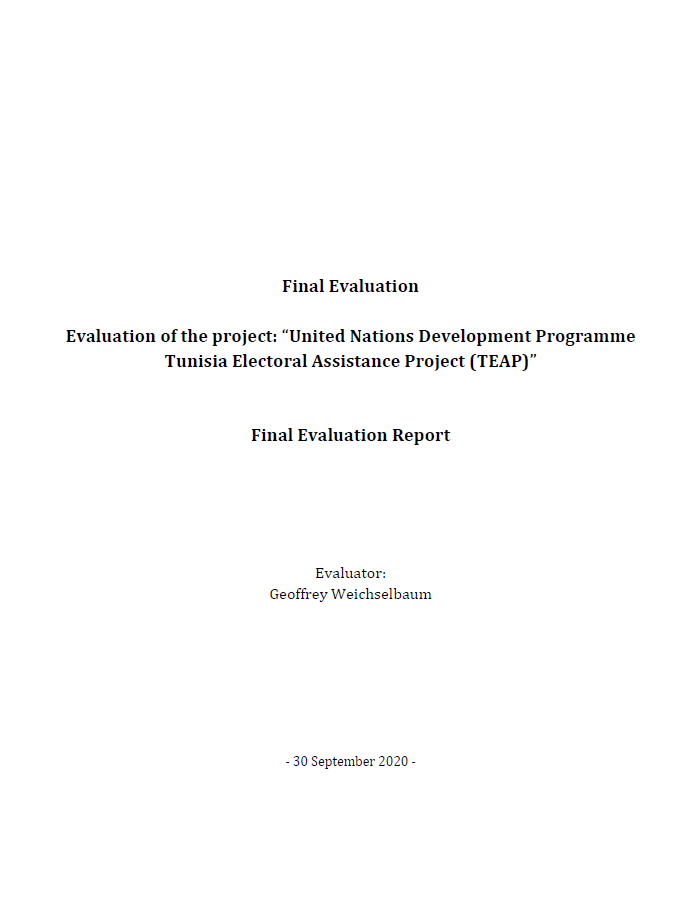
Évaluation finale - Assistance électorale
Output 3.2.2 National and local systems enabled and communities empowered to ensure the restoration of justice institutions, redress mechanisms and community security
Goal 5. Achieve gender equality and empower all women and girls
Goal 16. Promote peaceful and inclusive societies for sustainable development, provide access to justice for all and build effective, accountable and inclusive institutions at all levels
5.5 Ensure women’s full and effective participation and equal opportunities for leadership at all levels of decision-making in political, economic and public life
16.6 Develop effective, accountable and transparent institutions at all levels
1: Governance
2: Others


